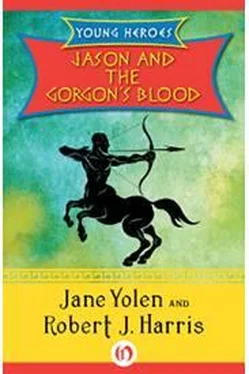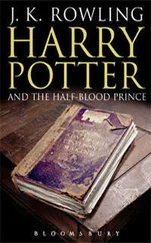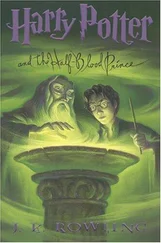Robert Harris - Jason and the Gorgon's Blood
Здесь есть возможность читать онлайн «Robert Harris - Jason and the Gorgon's Blood» весь текст электронной книги совершенно бесплатно (целиком полную версию без сокращений). В некоторых случаях можно слушать аудио, скачать через торрент в формате fb2 и присутствует краткое содержание. ISBN: , Издательство: Open Road Media, Жанр: Старинная литература, на английском языке. Описание произведения, (предисловие) а так же отзывы посетителей доступны на портале библиотеки ЛибКат.
- Название:Jason and the Gorgon's Blood
- Автор:
- Издательство:Open Road Media
- Жанр:
- Год:неизвестен
- ISBN:978-1-4804-2338-1
- Рейтинг книги:3 / 5. Голосов: 1
-
Избранное:Добавить в избранное
- Отзывы:
-
Ваша оценка:
- 60
- 1
- 2
- 3
- 4
- 5
Jason and the Gorgon's Blood: краткое содержание, описание и аннотация
Предлагаем к чтению аннотацию, описание, краткое содержание или предисловие (зависит от того, что написал сам автор книги «Jason and the Gorgon's Blood»). Если вы не нашли необходимую информацию о книге — напишите в комментариях, мы постараемся отыскать её.
Jason and the Gorgon's Blood — читать онлайн бесплатно полную книгу (весь текст) целиком
Ниже представлен текст книги, разбитый по страницам. Система сохранения места последней прочитанной страницы, позволяет с удобством читать онлайн бесплатно книгу «Jason and the Gorgon's Blood», без необходимости каждый раз заново искать на чём Вы остановились. Поставьте закладку, и сможете в любой момент перейти на страницу, на которой закончили чтение.
Интервал:
Закладка:
“That was no bonfire, Father,” Acastus said. “That was Kentauros, the leader of the centaurs. The poisoned blood he planned to pour into the spring destroyed him instead.”
Jason looked from father to son, and he could see the resemblance clearly, though it was less than it would have been a week ago. Acastus no longer carried himself with arrogance, nor did he speak as if his every word were a royal decree. Jason doubted King Pelias would have risked his own life drinking from the pool as his son had done. He would have ordered one of his men to do it in his place. Of that Jason was sure.
Acastus gave his father a brief account of their journey from Lake Boebis, carefully leaving out any mention of Jason.
“I’ve already met Admetus and Lynceus,” said the king, “and now you have told me of this brave warrior Idas, but who is this other youth?”
He fixed his hawklike gaze on Jason.
Jason knew that if King Pelias spotted a resemblance between himself and his father, Aeson, it could be the end of both of them. He bowed his head, like a servant humbled in the presence of his lord.
“He’s an orphan,” Acastus replied quickly, “a servant of Chiron. He acted as our guide. That’s all.”
The other boys looked surprised, and even angry at that, and Admetus started to say something. But Jason shook his head, to let them know that this was what he wanted.
Pelias immediately lost interest in Jason and turned to his troops. “Board your chariots, my warriors!” he commanded. “Let us return to Iolcus and celebrate this victory with feasting and song! Let us praise the name of Prince Acastus, a son of whom any man would be proud!”
“Acastus!” the warriors cheered, drumming the butts of their spears on the ground.
“My companions should be honored,” said Acastus, motioning to them with his hand, “and my sister, too.”
“Of course they are invited to the feast,” said the king. “And what about your guide?”
Acastus shuffled his feet uneasily. “We don’t need him anymore. He should go back to Chiron at once and tell him what’s happened.”
“I’ll have one of my charioteers take him as far as the mountains,” said Pelias. He turned and walked off, duty done.
Acastus took Jason aside. “One day your part in this will be honored,” he said, “but right now it would be dangerous for you to attract too much attention from my father.”
“Thank you, Acastus,” said Jason, and meant it. He smiled. “Then you’ve changed your mind about us settling things like warriors?”
“We have settled things like warriors,” Acastus replied, “fighting side by side. How you stayed on that creature’s back I’ll never know! And the way you fired that stone!”
Jason laughed. “There was more luck to that shot than I care to admit, Acastus.”
“What matters,” Acastus said, “is that you never stopped fighting. From now on we are comrades in arms, whatever happens in the future.”
For a moment Jason could not think what to say. He wondered if Hera had guided his shot or if she’d abandoned him to his fate long before. Either way, with Acastus offering himself as a friend, Jason knew he could never help the goddess in her scheme for revenge. If ever he returned to Iolcus, it would not be with an army, but alone and unarmed.
“I can’t guess what the future holds for us, Acastus,” he told the prince, “but I promise you this: If ever I come for my throne, I will do no harm either to you or your father.”
“And I promise no harm will come to you, either. Let the gods decide the rest.” Acastus put a hand on Jason’s shoulder.
“In the meantime,” Jason said, “my mother and father are still living in Iolcus ….”
“You will find them safe and well when you come,” Acastus promised. “I will see to it.”
He offered his hand, and Jason clasped it firmly.
The other boys gathered around them.
“I can’t pretend to understand what’s going on, Jason,” said Admetus, “but I suppose if you don’t want anyone to know about your part in all of this, we’ll go along with that.”
“Thank you,” said Jason. “One day everything will be made clear.”
“When that day comes, Jason,” said Lynceus, “if you should need a sharp pair of eyes—”
“Or a strong arm,” Idas put in.
They spoke together, “Just send for us.”
“Me, too,” said Admetus. “If you should ever need somebody who can … well, somebody who’s willing to help, I will come.”
“I will remember all of you,” Jason assured them. “And I hope that one day we will all travel together again.”
“In that case I hope it’s an easier journey than this one!” said Admetus.
“Easier?” Idas laughed. “Why, this was just a warm-up!”
And they all laughed with him, Jason the loudest of them all.
WHAT IS TRUE ABOUT THIS STORY?
DID THE HEROIC AGE—the Age of Heroes—really exist? Yes and no. No—there was not a time when the gods took part in human battles, nor were there harpies flying about mountaintops or centaurs galloping along the plains. There were no Gorgons, monsters whose blood could bring both life and death.
But yes—there was once a rich and powerful civilization in Greece that we call Mycenaean, where each city was a separate state with its own king but where the people were united by a single language. One of these was the kingdom of Thessaly, on the plains, where King Jason eventually reigned.
In the old mythological stories, Aeson—then rightful king of Iolcus—gave up his throne to his half brother, Pelias. Fearing his own baby son Jason would be killed by the greedy new king, Aeson sent the infant to the mountains to be reared by Chiron, the wise centaur.
When Jason was grown, he came down out of the mountains to demand the crown from Pelias. Pelias had been warned by an oracle to beware of a one-sandaled lad, and since Jason arrived wearing only one sandal, Pelias knew he had to destroy the young man. He suggested that before becoming king, Jason should first go on a perilous quest to retrieve the Golden Fleece, which rightfully belonged in Thessaly. Pelias did not expect Jason to return.
Jason was thrilled to go on such a quest. He rounded up fifty of the heroes of Greece—including the king’s son, Acastus; Lynceus (whose eyesight was so keen he reputedly could see right through the earth) and his brother, Idas; Admetus; Hercules; Theseus; Orpheus; Nestor and (in some versions of the story) the female hero Atalanta. Many are the names in the folklore, as Greek families added to the story for centuries in order to claim an ancestor who sailed with Jason.
Jason’s boat was built by an innovative builder named Argos and was named the Argo after him. The fifty who sailed on her were known as the Argonauts. Some folklorists feel that this adventure may have—in part—been based on one of the earliest maritime expeditions known to Western civilization.
The love story of Admetus and Alcestis is told in mythology, and thence in a play by Euripides based on the folklore. Admetus was another king in mythic Thessaly. The god Apollo, learning that Admetus was destined to an early death, conned the Fates (with the help of a great deal of wine) into granting Admetus a longer life if someone would die in his place. His father and mother refused, but his wife, Alcestis, agreed to offer herself. Coming to visit his friend Admetus, Hercules learned of what had happened. He intercepted Thanatos—the messenger of death—and wrestled him into submission, freeing Alcestis. And so the loving couple were reunited. This myth gives no reason for Admetus’ early death, but we have provided one in our story, for herein Admetus brings down a curse on himself by using the Gorgon’s blood to restore Alcestis to life.
Читать дальшеИнтервал:
Закладка:
Похожие книги на «Jason and the Gorgon's Blood»
Представляем Вашему вниманию похожие книги на «Jason and the Gorgon's Blood» списком для выбора. Мы отобрали схожую по названию и смыслу литературу в надежде предоставить читателям больше вариантов отыскать новые, интересные, ещё непрочитанные произведения.
Обсуждение, отзывы о книге «Jason and the Gorgon's Blood» и просто собственные мнения читателей. Оставьте ваши комментарии, напишите, что Вы думаете о произведении, его смысле или главных героях. Укажите что конкретно понравилось, а что нет, и почему Вы так считаете.












